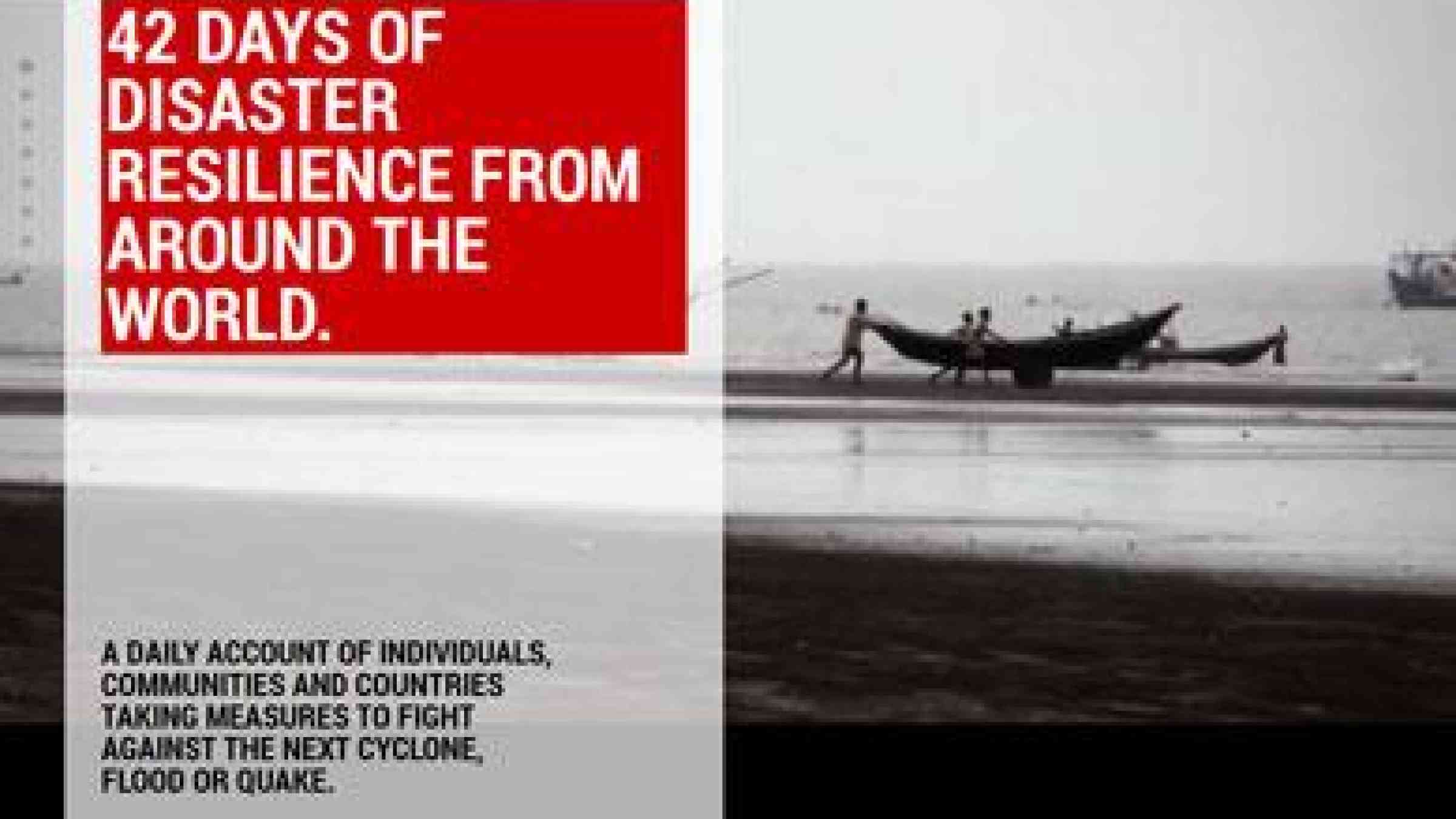More and stronger natural disasters: European Red Cross Societies and European Commission launch campaign to improve preparedness

Geneva/Brussels – Extreme weather events are increasing in frequency, severity and magnitude, warn the International Federation of Red Cross and Red Crescent Societies (IFRC) and the European Commission today. Everyone - from European citizens to policy-makers - needs to be more prepared for the impact of this new phenomenon at home and around the world. To stimulate the discussion and boost awareness about upward disaster trends and the efforts needed to mitigate them, the IFRC, 12 National Red Cross Societies in Europe and the European Commission are launching a storytelling campaign about the importance of preparing for disasters and strengthening community resilience.
"Disasters take lives and ruin prospects, often making the situation of already impoverished people even worse," said EU Commissioner for International Cooperation, Humanitarian Aid and Crisis Response Kristalina Georgieva. "Thanks to the solidarity of European citizens, we support people to prepare and adapt before, during and after disasters so that they protect themselves. Preparedness saves lives - but it is also economically smart: every euro invested in disaster risk reduction measures has a return of four to seven times".
Throughout the world, EU-funding enables the IFRC to work with communities at risk - engaging in disaster risk reduction and preparedness activities that help strengthen resilience, reduce losses and improve recovery times. This work can be explored through an interactive web documentary: The Disaster Resilience Journal.
“By being embedded in communities and understanding their needs, we can anticipate the issues that may arise during a crisis, and can develop effective responses to protect lives and livelihoods,” said IFRC Secretary General Elhadj As Sy. “These actions must be sensitive to the community and culture, and also make the best use of local resources.”
Background
In the last 20 years disasters have killed 1.3 million people and affected 4.4 billion, as well as causing major economic losses. By 2030 the annual economic cost of disasters is estimated to reach 328 billion Euros.
For 42 days, the IFRC - European Commission campaign will present daily stories of resilient people via social media, blogs and word of mouth. The Disaster Resilience Journal will tell the stories of how communities in 24 different countries prepare for disasters, such as building safer shelters in Haiti and in the Philippines, terracing to avoid soil erosion in Rwanda, carrying out evacuation drills in Bangladesh and planting vegetable gardens in Mauritania’s desert. The Journal will show the difference made for vulnerable people by the Red Cross and Red Crescent Societies with financial support from the European Union. The Journal is the result of a collaboration with 2014 Peabody Award winners Mike Robbins of Helios Design Labs (A Short History of the High Rise) and documentary filmmaker, Elaine Sheldon (Hollow Documentary).
The official launch of the Disaster Resilience Journal and campaign will take place online on 22 September 2014, and on 23 September in Vienna at a round-table discussion entitled “What does it take to strengthen community resilience?“ which will take place at Austrian Red Cross in Vienna, and will be web streamed live (see programme).
You can join the conversation by hosting the Disaster Resilience Journal on your website and encouraging your audience to share their stories of disaster resilience on www.disasterjournal.tumblr.com.
For Red Cross enquiries, please contact:
Virginie Louis, Senior Officer, Communications, Red Cross EU Office, Brussels, +32 2 235 06 83, email: [email protected]
For Commissioner Kristalina Georgieva, please contact:
David Sharrock, Spokesperson, European Commission, +32 2 296 89 09